November 02, 2020
Uganda promotes access to education through cycling
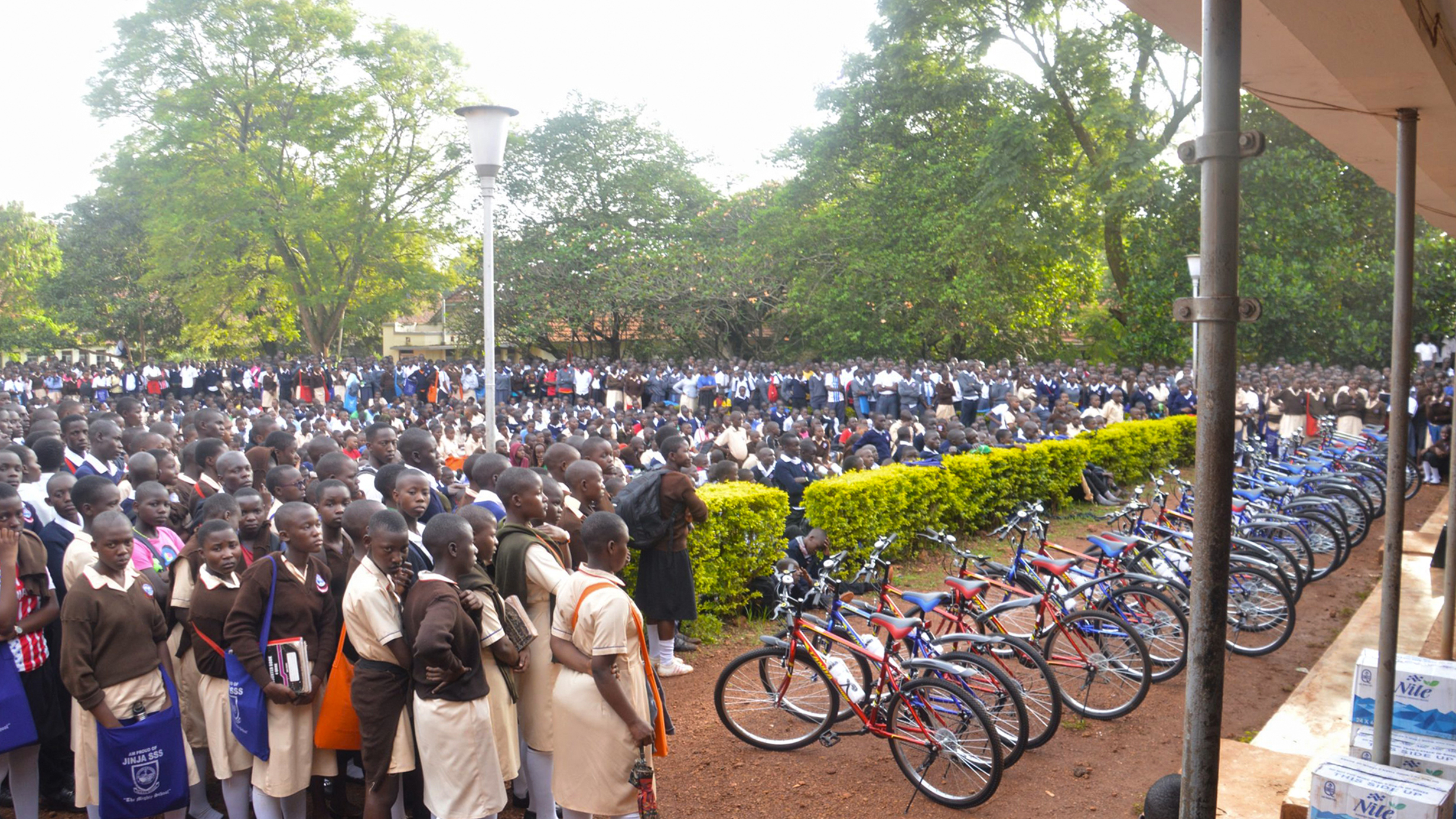
Mobility is a challenge for many students in Africa. Most of them have to commute for long hours by foot or by expensive motorised modes in order to get to school. In Uganda, students use school shuttles, matatus, or motorcycle taxis, known as boda bodas. These options are costly and lack of the required daily fares leads to constant absenteeism and increased dropout rates. Students who opt to walk often get to school late and this affects attendance and overall school performance.
To improve access to school, ITDP in collaboration with the First African Bicycle Information Organisation (FABIO) and with support from the Roy Hunt Foundation has launched a bicycle distribution project at Jinja Senior Secondary School, located in Uganda’s Jinja District.
Jinja Senior Secondary School has a vibrant cycling culture and was therefore suitable for the bicycle distribution project. In addition, the school has a bicycle shed with a capacity of 500 bicycles, reserved for students who opt to cycle. Jinja District has relatively flat terrain and is located on the shores of Lake Victoria, making cycling an efficient and attractive mode of transport. However, less than 50 students currently cycle to school. A majority of the students who would like to cycle cannot afford to buy bicycles.
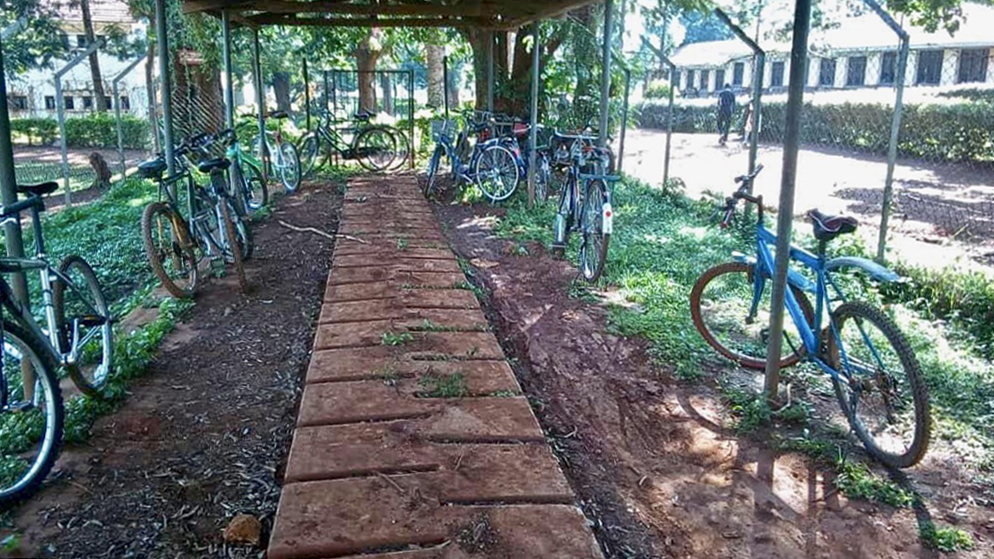
As a first step, students were required to submit applications for bicycles. The criteria used to identify recipients included the area of residence, commute distance, and rate of attendance. In the initial round, 68 students made applications for the bicycles. Initial assessments revealed that the majority of the applicants were either frequently late or absent from school due to limitations in transport.
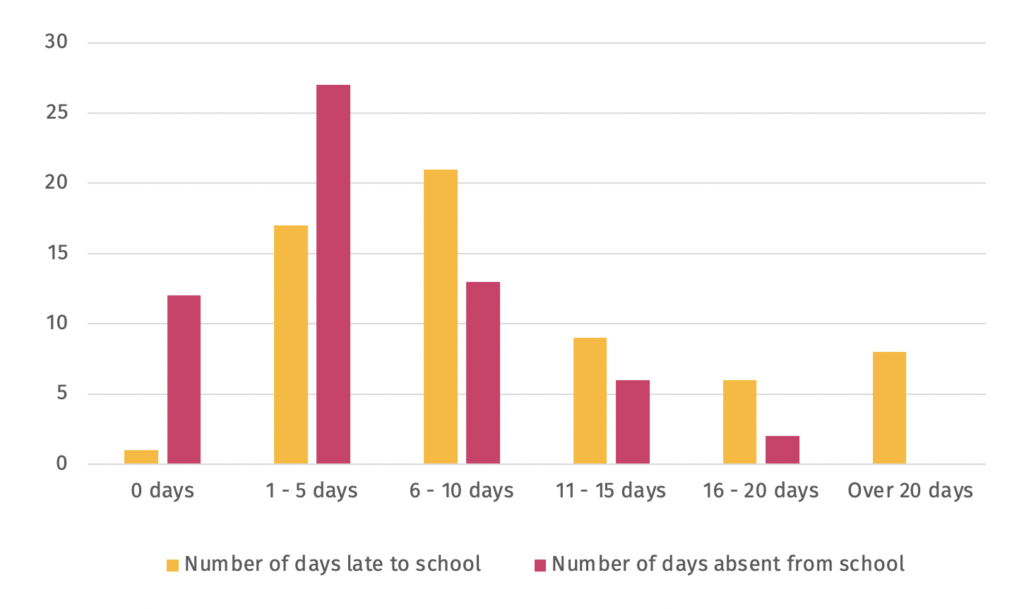
The analysis also showed that 75 percent of the students travelled for more than 30 minutes to get to school, while 5 percent walked for more than 2 hours.
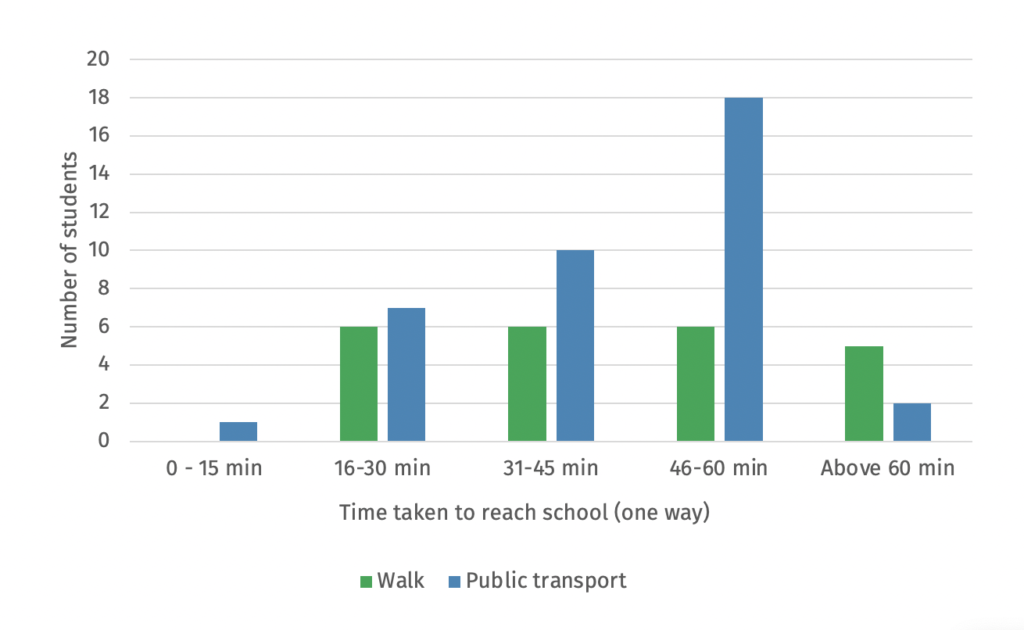
Walking trips were more concentrated closer to the school. However, some of the students walked as far as 13 km to get to school.
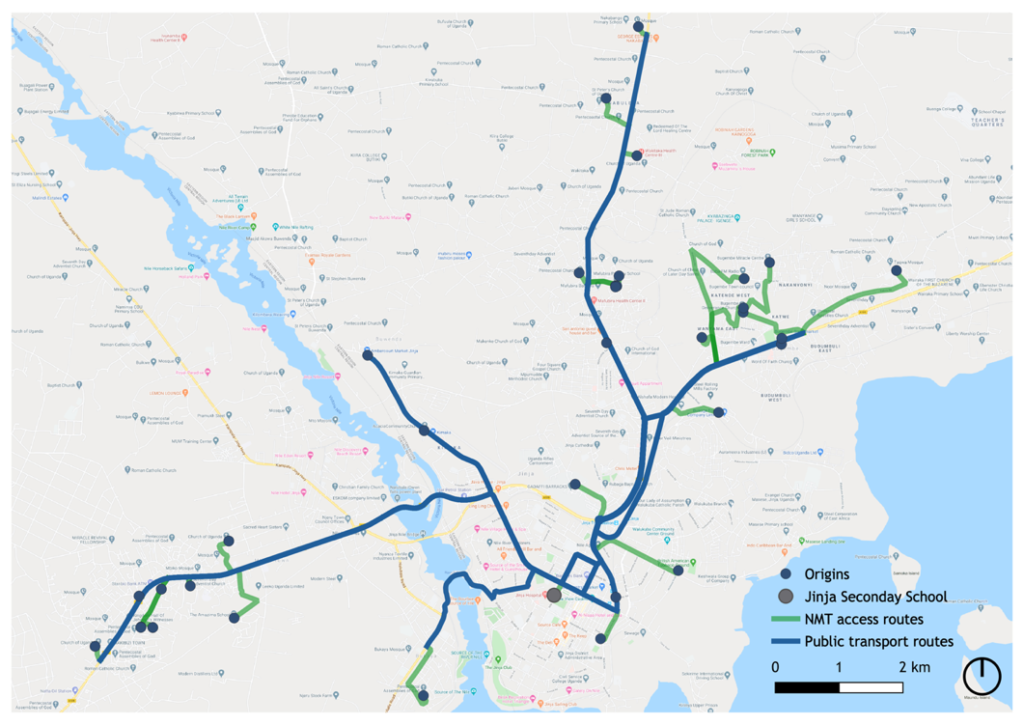
As seen in the map above, many students travel long distances to school, making the commute tiring and expensive. The survey revealed that the majority of students are not satisfied with their current modes of transport.
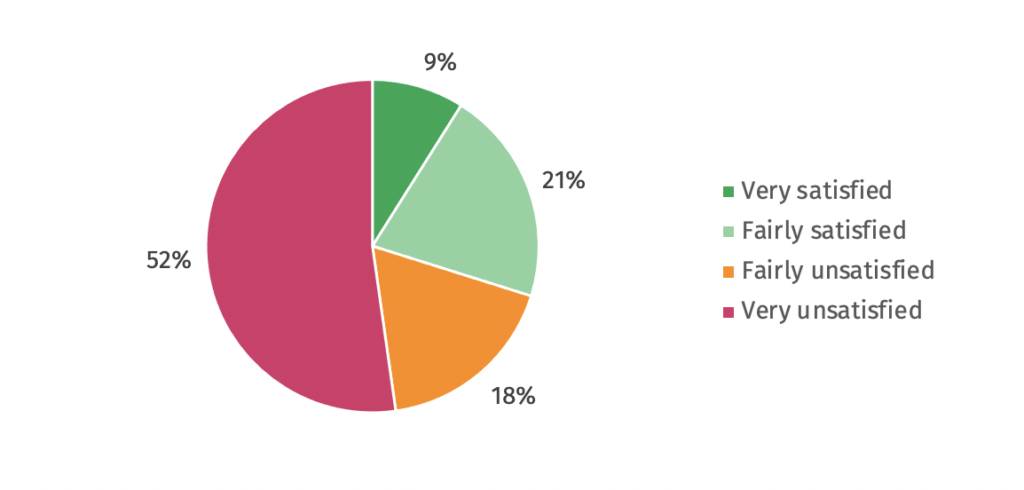
The first phase of the bicycle distribution project took place on 19 November 2019. The event was officiated by the District Education Officer (DEO)/Inspector of Schools and the Resident District Commissioner (RDC) of Jinja. Twenty-five bicycles were issued and the students were also trained on bicycle usage, handling, and repairs in order to cut down on maintenance costs.
The second phase of the bicycle distribution took place on 23 March 2020. Another 25 bicycles were handed over during this phase. In total, 50 bicycles were distributed to students at Jinja Senior Secondary School. Of the 50 beneficiaries,18 were female and 32 were male.
As schools re-open, ITDP and Fabio will conduct a follow-up survey to assess the impact of the cycles. Through this project, FABIO and ITDP hope that the students will be able to reduce transport costs, travel times, and dropout rates while promoting a cycling culture and a cleaner environment.
